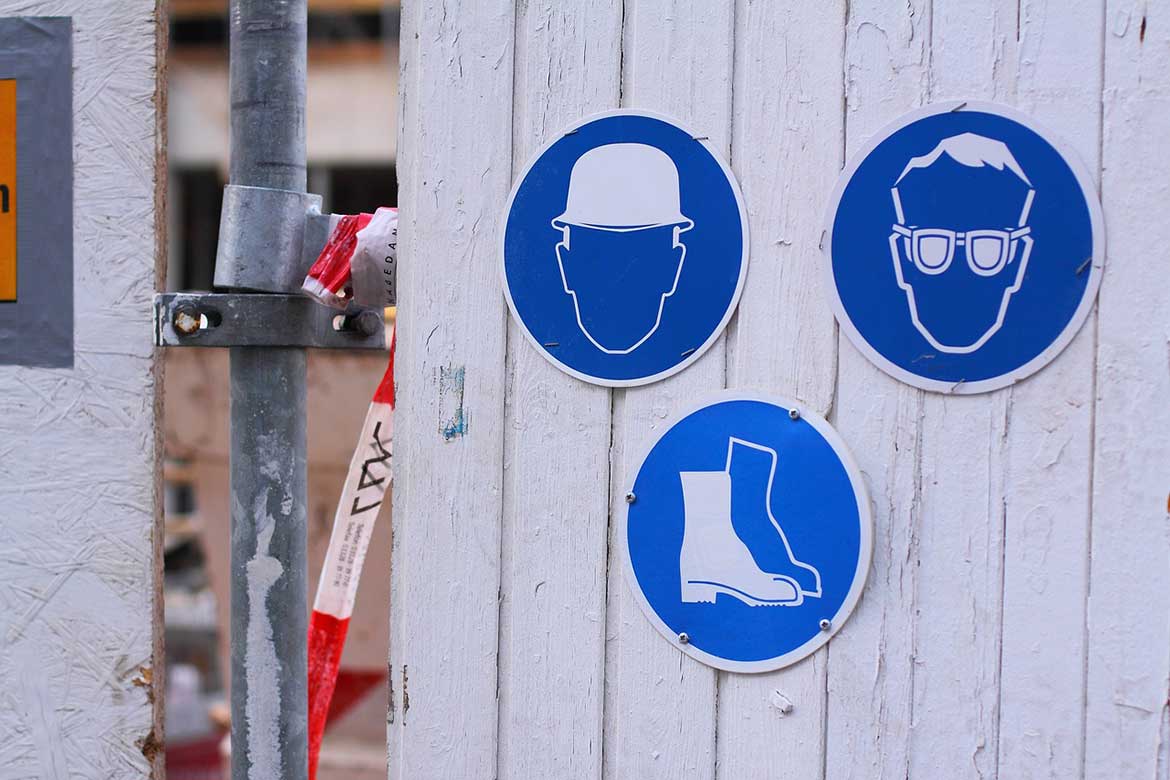23rd October, 2024
Why Toolbox Talks Are Important In Construction
Toolbox talks are short health and safety talks, mostly used on construction sites. While the term isn't limited to the construction industry, toolbox talks are an important way to spread health and safety information on your sites. Let's find out what makes toolbox talks important in construction.

The term toolbox talk is most often heard in construction. While this term isn't limited to the construction industry, it's where you are most likely to hear people mention it.
You also have health and safety talks and health and safety moments in other industries. And essentially, these are the same kind of thing. However, the term toolbox talk is mostly used on construction sites.
Before we look at why toolbox talks are important, let's consider what toolbox talks are.
Toolbox talks are short health and safety talks.
It's as simple as that.
They are designed as a short refresher on a single health and safety subject or topic. Quick, easy, and often. These safety talks should be delivered frequently.
Sometimes weekly, but ideally daily.
Find out more in how often should a toolbox talk be undertaken? and 9 reasons to have daily toolbox talks.
Why are these health and safety toolbox talks important? And why are they so important in construction?

Construction is high-risk
Construction is a high-risk industry. According to HSE statistics, you're more likely to get injured if you work in construction than in most other industries, like manufacturing, transport, storage or administration. Because of this, a construction site is one of the most dangerous places to work in the UK.
To make construction sites as safe as they can be, the people working on them need to know about the hazards involved, and how to work safely to reduce the risks.
Regular toolbox talks are one way to share this information.
With construction work being risky, careful planning is essential to get work done safely. This involves setting out a health and safety plan, carrying out risk assessments, making sure people have the right training and experience, and putting together safe systems of work.
It's a legal requirement to have a construction phase plan for your construction project and to keep that plan up to date.

But none of the above is useful if people don't know about it.
Having all your paperwork and training records in place is great, but that information needs to be put to use. Workers need to know about the controls and plans for safe work and understand what they need to do.
How can you tell them? Toolbox talks!
One reason toolbox talks can be an important part of your health and safety management is that they can deliver new knowledge.
Construction work is complex
Construction work usually involves different trades working together on a project. From project to project, the teams and the type of work are usually different.
And each trade can be carrying out complex tasks.
Some workers might be creating excavations, others might be connecting services.
And when things change, you can use toolbox talks to tell workers about new activities and topics.
Of course, everyone will have had training in the work they do and the hazards they face. But toolbox talks can be delivered at the right time.
While your training courses might be done at a time you can schedule them in, and your safe systems of work might be planned weeks in advance, your toolbox talks can be used to provide this information when it is needed.
Ideally, you'll give a toolbox talk each day, specific to the work happening that day.

Working at height today? Give a talk at the start of the shift to refresh awareness of the risks, and remind your team what they learned on that course 6 months ago.
These 5-10 minute safety talks can fit in when you need them, and when the information can be most useful. Right before it is needed. No need to send your team off-site to a classroom, the talk can be delivered there and then.
Toolbox talks can also help you to comply with the law. As we have written previously, toolbox talks are not a specific legal requirement. However, employers are required to provide information, instruction, and training to employees. Toolbox talks can be part of the delivery of information and instruction to the workforce.
Toolbox talks or health and safety talks are important in all industries. And in a high-risk industry such as construction, they are especially important to help keep the workforce safe.
Construction hazards change
Some work environments tend to stay the same. Work environments like offices, schools, shops, and even warehouses are usually fairly predictable - especially compared to construction sites.
Sometimes work might be happening underground, other times you could be on a roof. One project might be a new build, another could be a refurbishment or even a demolition.
And the type of hazards workers face will change too.
It's not always easy to transition from one type of work to another. But a quick toolbox talk can help remind your team of the new hazards they face.
Toolbox talks won't take the place of a training course, but they can provide additional information on smaller hazards that can still trip you up on site.
You might not have a full training course on slips trips and falls for example. But since slips and trips account for around 40% of all reported major injuries, it's certainly an important subject to make your team aware of. If you notice a problem with trip hazards on your site, a toolbox talk is perfect for giving your team vital information on the causes and how to prevent slips, trips and falls on or around the site.

Toolbox talks for roofing could cover roof work, scaffolding, working at height and falling objects.
Need help with your toolbox talks? Here are 30 free toolbox talks for construction.
Another reason toolbox talks are important is that they can refresh existing knowledge. You may have sent your team on many health and safety training courses - asbestos awareness, working at height, and ladder safety to name a few.
Toolbox talks are not a replacement for these full training courses. However, how often are these training courses taken? Annually? Every 3 years? Every 5 years? Some courses need to be refreshed more often than others, but all usually go at least a year before they need to be refreshed. And as time goes by, people tend to forget some of the things they learned on that course they went on a few months, or even years ago.
Toolbox talks are perfect for refreshing knowledge in between these full courses, to keep the health and safety message in mind, and to prevent standards from slipping.
Wondering how to come up with enough topics for regular toolbox talks? Check out our blog post with details of 100 toolbox talk topics you can use. Or manage your toolbox talks online with the Talks Plan.
This article was written by Emma at HASpod. Emma has over 10 years experience in health and safety and BSc (Hons) Construction Management. She is NEBOSH qualified and Tech IOSH.
Need toolbox talks?
Get toolbox talks for you and your team with HASpod talks membership.
Talks PlanRecent posts like this...

30+ Free Toolbox Talks For Construction
Carrying out regular toolbox talks isn't always easy when you need to come up with a subject, prepare, and deliver the content. It's easier when you have your talk ready and prepared. In this post, we look at over 30 free toolbox talks for construction. Download and use them for your site.
Read Post
The Best 100 Safety Topics For Daily Toolbox Talks
It can be hard to think of ideas for health and safety toolbox talks, but luckily, there are many subjects you can use. Check out these 100 safety topics to help you get started, and find out why each topic is important, who needs to hear it, and what information to cover.
Read Post
How To Write A Toolbox Talk
How do you write a toolbox talk? It's not always easy to start with a blank page and decide what to talk about. And even though toolbox talks are short, preparing the talk is not so quick and simple. Follow our guide and learn how to create the perfect toolbox talk (in less time!).
Read Post